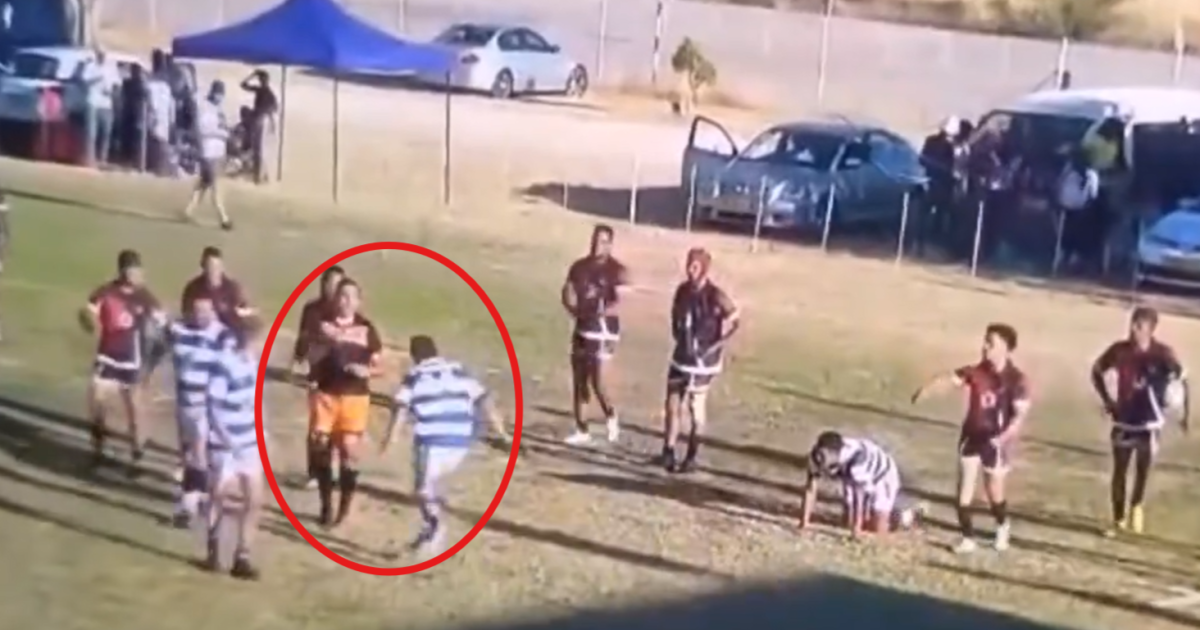Namibie : un joueur de rugby interdit de jouer à vie

C’est une décision rare qui vient d’être prise par la fédération namibienne de rugby. Un joueur de club namibien s’est vu infliger une interdiction à vie de jouer au rugby à la suite d’une altercation avec un arbitre le mois dernier.
Il a également été suspendu de toute forme de rugby – que ce soit l’entraînement, l’arbitrage et l’administration – pendant 156 semaines jusqu’au 31 mai 2027.
L’arbitre plaqué au sol
L’affaire remonte au 18 mai dernier lorsqu’un joueur du club de Grootfontein s’est rué vers l’arbitre du match et l’a plaqué au niveau des épaules pour le faire lourdement chuter au sol. Le joueur a reçu un carton rouge et l’arbitre a interrompu le match avec effet immédiat pour des raisons de sécurité.
Une audience disciplinaire a été convoquée 12 jours plus tard, le 30 mai, et après avoir examiné le rapport de l’arbitre et les images vidéo de l’incident, il a été décidé de sanctionner lourdement le joueur fautif.
Grootfontein vs Falcons game in Namibia. 156 week ban from all rugby activities for the “tackle” on the referee, and a lifetime ban from playing the game as well. In fairness, you can’t be doing that to the ref! pic.twitter.com/L34xj4A1qU
— Kevin OCeallaigh (@koceallaigh) June 3, 2024
Une vidéo de l’incident du match contre les Reho Falcons montre que lors d’un arrêt de jeu, l’arbitre a appelé un joueur de Grootfontein et l’a sanctionné d’un carton. C’est alors que « son agresseur » a couru vers lui pour le plaquer violemment.
Le joueur s’est rendu coupable d’infractions aux règles 9.11, 9.12, 9.27 et 9.28 de World Rugby.
La fédération namibienne de rugby a communiqué la sentence sur les réseaux sociaux : « Un incident grave a eu lieu impliquant un joueur du Grootfontein Rugby Club qui a plaqué l’arbitre du match, entraînant l’arrêt prématuré de la rencontre.
« Suite à une audience disciplinaire, la NRU a imposé au joueur une interdiction à vie de jouer au rugby et une interdiction de 156 semaines de toute activité liée au rugby, effective à partir du 30 mai.
« La commission a souligné la gravité de l’infraction, mettant en avant le risque de blessures graves pour l’arbitre, la nature délibérée de l’acte et l’impact négatif sur la réputation de la NRU et du rugby au niveau international.
« Notre engagement envers la sécurité et l’intégrité du rugby reste inébranlable. »
Le joueur a le droit de faire appel de sa condamnation.
Cet article publié à l’origine en anglais sur RugbyPass.com a été adapté par Willy Billiard.


